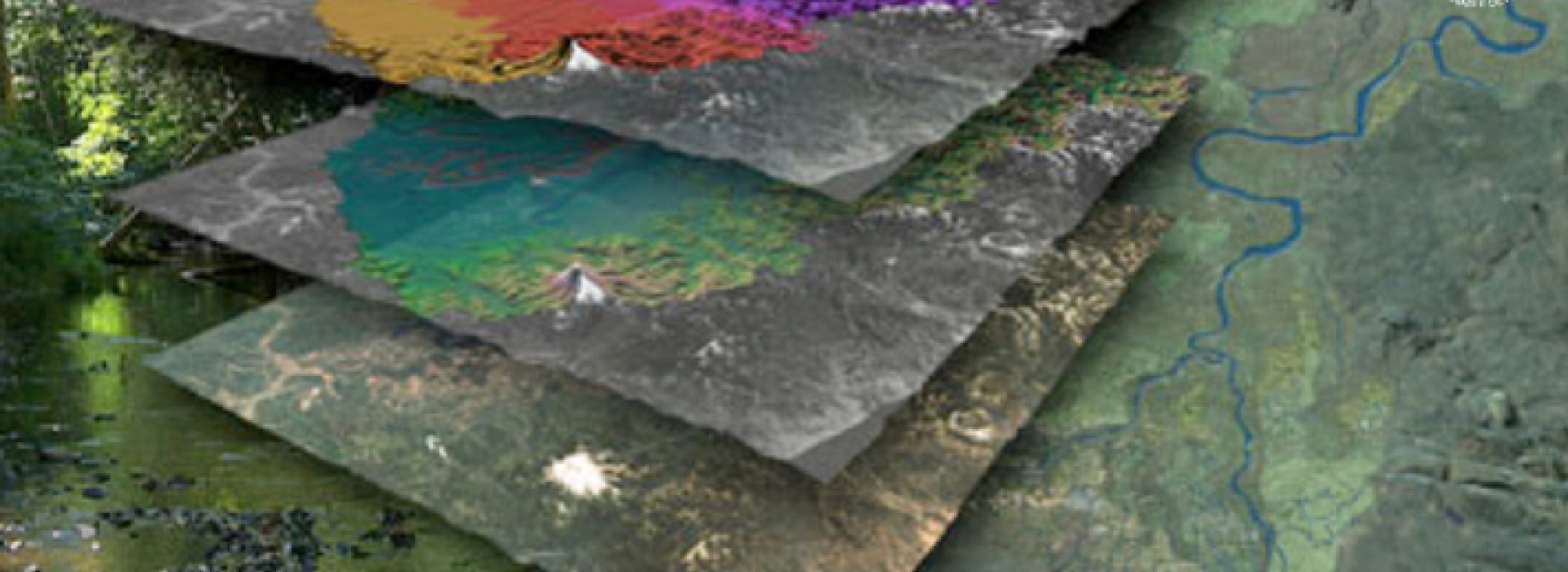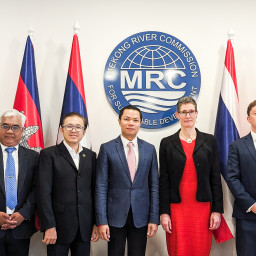Mekong River Commission keen to improve data sharing and management in the Lower Mekong Basin
On September 14-15, 2017 in Ho Chi Minh City, Viet Nam, the Mekong River Commission (MRC) hosted the Regional Consultation Workshop on Data Management Improvement. The consultation convened representatives of the MRC, National Mekong Committees, and development partners including the World Bank, Australia, and the United States. The consultation heard about the status of data management at the national and regional levels, regional and international initiatives shared by the Lower Mekong Initiative in its proposed Mekong Water Data Initiative, Australia’s World Water Data Initiative developed under the auspices of the UN-World Bank High Level Panel on Water, and explored areas of further cooperation.
The workshop builds on the Regional Workshop on Water Resources Modelling in the Mekong River Basin: Developing Synergies Between the National and the Mekong River Basin Modelling Program (July 2017) in which the MRC member countries heard about the findings on status, challenges, issues of data management and modeling tools from the World Bank-Australia’s commissioned review, and conveyed the need for further improvement. Recommendations included re-examining the procedural rules on data sharing, exploring updated software for time series data management, and options for real time data management with the projected increased need in real time data for flood and drought forecasting for instance.
In 2001, ministerial delegates of the MRC Council adopted a set of procedural rules on multilateral data sharing among the four Mekong riparian countries of Cambodia, Lao PDR, Thailand and Viet Nam known as the “Procedures for Data and Information Exchange and Sharing,” also known as PDIES. PDIES provides the framework for the member states to share and exchange data on water resources, topography, agriculture, navigation, flood management and ecology, among others, for joint management of the shared water and related natural resources in the region. PDIES data sharing has allowed, for example, the MRC to provide real-time water level information and more accurate flood forecasting.
The MRC Secretariat acts as the custodian of data – managing the information system – on behalf of the MRC member countries. The Secretariat collates, shares, manages, and uses the data as input to its research and technical guidance as the key knowledge hub on the Mekong River.
Over the last decade though, the MRC has observed emerging challenges in data and information sharing.
“The MRC sees a need in improving the speed of information sharing, adapting and using the advancing technologies in data management, and ensuring data integrity - whether it be reliable, accurate, and readily available information” said CEO Pham Tuan Phan.
At the workshop, Australia commended the MRC for its efforts and achievements in data and information management “making MRC a leader in this space in the Greater Mekong Region”. Australia highlighted the World Water Data Initiative (WWDI) which supports the United Nations and World Bank to advance SDG 6 (water for all) globally. The WWDI is a practical framework, tried and tested from decades of experience in Australia and World Meteorological Organization that can potentially address the challenges of the Lower Mekong Basin.
The US relayed its commitment to “supporting the sustainable development and sound management of the Mekong for the benefit of all the people in the region”. In August at the 10th Ministerial Meeting of the Lower Mekong Initiative (LMI), the Lower Mekong countries applauded the launch of the Mekong Water Data Initiative. In partnership with the MRC, development partners, and others, this initiative seeks to strengthen ongoing efforts to create a robust, integrated, and transparent platform for collecting, sharing, and managing data on the Mekong River system. This will improve the management of natural resources for the benefit of the Lower Mekong countries.
The MRC, in collaboration with development partners, affirms its commitment to improving data management for effective information exchange among its members; to making data and information accessible by the public, and promoting cooperation among the member countries in a constructive and mutually beneficial manner to ensure the sustainable development of the Mekong River Basin.

Delegates of the Regional Consultation Workshop on Data Management Improvement held in Vietnam’s Ho Chi Minh City on 14-15 September 2017.
Notes to Editor:
The MRC is the intergovernmental organization established to promote cooperation on the sustainable management of the Mekong Basin whose members include Cambodia, Lao PDR, Thailand and Viet Nam. The MRC acts as a platform for water diplomacy and regional cooperation in which member countries share the benefits of common water resources despite different national interests, and address transboundary pressures in the basin. It also serves as a knowledge hub that promotes regional cooperation and policy-making based on scientific evidence. The commission looks across all sectors including sustaining fisheries, identifying opportunities for agriculture, maintaining the freedom of navigation, flood management and preserving important ecosystems. Superimposed on these are the future effects of more extreme floods, prolonged drought and sea level rise associated with climate change.
The Procedures for Procedures for Data and Information Exchange and Sharing (PDIES) were adopted by the MRC Council (the policy making body at ministerial level) on the 8th March 2001 at it’s 13th Meeting in Bangkok, Thailand. Affirming the imperative for operationalizing and effective, reliable and accessible data and information system for the Mekong River Commission (MRC) and its Member Countries. The PDIES addresses general data and information gathering, entering into the MRC Information System, and sharing amongst the Member Countries (MC) and access by other parties. The PDIES aim to: (i) operationalise the data and information exchange among the four-member countries; (ii) make available, upon request, basic data and information for public access as determined by the concerned National Mekong Committees; and (iii) promote understanding and cooperation among the MC in a constructive and mutually beneficial manner to ensure the sustainable development of the Mekong River Basin.





